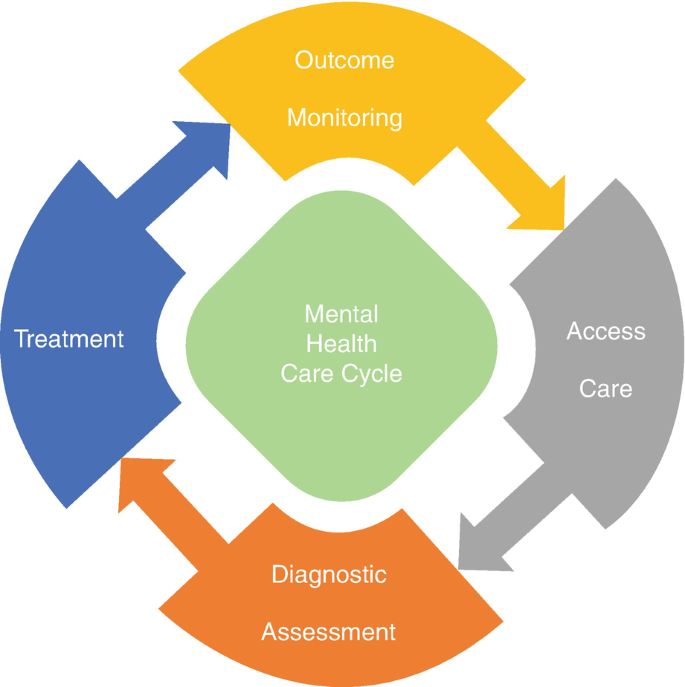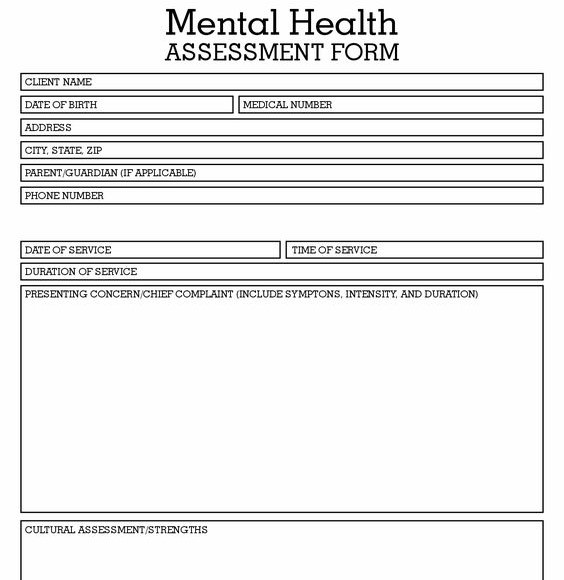
Table of Contents
Nursing case studies are powerful tools for learning, reflecting, and advancing the field of nursing. Within mental health, they hold particular significance, offering a glimpse into the complex tapestry of human experience, where individual stories intertwine with clinical interventions and therapeutic journeys. Writing an outstanding nursing case study about mental health requires a nuanced understanding of the subject, a commitment to patient privacy and ethical considerations, and a keen eye for detail.
This comprehensive guide will equip you with the knowledge and skills to create a compelling and impactful nursing case study about mental health.
Essential Elements of Mental Health Nursing
Mental health nursing is a specialized field that requires a unique set of skills and knowledge. Here are some essential elements:
1. Therapeutic Relationship:
- Empathy and active listening: Building trust and rapport with patients by actively listening to their concerns and showing empathy for their experiences is paramount.
- Communication skills: Clear and effective communication is vital for understanding patients’ needs, providing accurate information, and fostering open dialogue.
- Therapeutic boundaries: Maintaining appropriate boundaries is crucial to ensure ethical care and a safe therapeutic environment.
2. Assessment and Diagnosis:
- Mental health assessment: Conducting thorough assessments to identify signs and symptoms of mental health conditions, including gathering information from the patient, family members, and medical records.
- Understanding diagnostic criteria: Having a strong grasp of diagnostic criteria for various mental health conditions allows for accurate diagnosis and appropriate treatment planning.
- Collaboration with other professionals: Working closely with psychiatrists, psychologists, social workers, and other healthcare professionals to develop comprehensive treatment plans.
3. Treatment and Intervention:
- Individualized care planning: Developing tailored treatment plans based on the patient’s specific needs and goals.
- Psychosocial interventions: Employing therapeutic techniques like cognitive behavioral therapy (CBT), dialectical behavior therapy (DBT), and motivational interviewing to address underlying issues and promote recovery.
- Medication management: Understanding the role of medication in treatment, educating patients about their medications, and monitoring for side effects and effectiveness.
- Crisis intervention: Responding effectively to mental health emergencies and providing immediate support to patients in crisis.
4. Advocacy and Empowerment:
- Patient advocacy: Championing patients’ rights and ensuring they have access to the resources and support they need.
- Empowerment and self-management: Encouraging patients to take ownership of their recovery and develop coping mechanisms for managing their condition.
- Community resources: Connecting patients with community resources and support networks to promote long-term well-being.

5. Ethical Considerations:
- Confidentiality: Maintaining strict confidentiality of patient information.
- Informed consent: Ensuring patients understand their treatment options and provide informed consent.
- Professional boundaries: Maintaining ethical professional boundaries with patients.
6. Continuous Learning and Self-Care:
- Staying abreast of latest research: Keeping up-to-date with advancements in mental health treatment and research.
- Self-care: Prioritizing mental and emotional well-being to prevent burnout and maintain professional effectiveness.
Nursing Case Study about Mental Health:
- A nursing case study about mental health can provide valuable insights into the application of these essential elements in real-world settings.
- For example, a nursing case study about mental health might involve a patient experiencing anxiety and depression, highlighting the nurse’s role in assessment, treatment planning, and supporting the patient’s recovery journey.
- Analyzing a nursing case study about mental health allows nurses to learn from the experiences of others and refine their practice.
By mastering these essential elements, mental health nurses can provide compassionate, evidence-based care that empowers patients on their journey towards recovery. Developing strong interpersonal skills, a commitment to patient advocacy, and a continuous drive for professional growth are key to excelling in this rewarding field. Understanding the above elements will also help you to create an engaging nursing case study about mental health.
Step-By-Step Guide to Crafting a Nursing Case Study about Mental Health
1. The Foundation: Choosing a Relevant and Compelling Case
The first step in crafting a compelling nursing case study about mental health is selecting a relevant and engaging case. This requires considering the scope of your study, your learning objectives, and the potential impact of the chosen case.
a. Identify your focus: Are you interested in a specific mental health diagnosis, like schizophrenia or anxiety? Do you want to explore a particular intervention, such as cognitive behavioral therapy (CBT) or medication management? Or are you interested in a specific population, like adolescents or older adults?
b. Consider the learning objectives: What knowledge and skills do you want to convey through this nursing case study about mental health? Are you aiming to educate your readers on the signs and symptoms of a particular mental health condition? Do you want to demonstrate effective nursing interventions?
c. Assess the impact: Will the chosen case resonate with your audience? Can it offer valuable insights into the lived experiences of individuals with mental health conditions? The topic or subject of your nursing case study about mental health should be impactful enough to leave a lasting impression on readers.
2. Ethical Considerations: Protecting Patient Privacy and Confidentiality
Ethical considerations are paramount in every nursing case study about mental health. It is crucial to protect patient privacy and confidentiality throughout the study.

a. Obtain informed consent: Before including any patient information in your nursing case study about mental health, you must obtain informed consent from the patient or their legal representative. This consent should be in writing and clearly outline the purpose of the study, how their information will be used, and the steps taken to ensure confidentiality.
b. De-identify patient information: To protect patient privacy, ensure that all identifying information is removed or de-identified. This includes names, dates of birth, addresses, medical record numbers, and any other details that could potentially identify the patient. Use fictitious names and alter specific details to safeguard anonymity.
c. Respect patient dignity and autonomy: Throughout the entire process, respect the patient’s dignity and autonomy. Ensure that the case study portrays the patient in a respectful and dignified manner, avoiding sensationalism or exploitative language.
3. Gathering Information: The Foundation of Your Case Study
Thorough information gathering is the cornerstone of a strong nursing case study about mental health. This requires accessing and analyzing a variety of sources:
a. Patient records: Review the patient’s medical records, including their mental health history, diagnosis, treatment plans, medications, and any relevant medical or social history.
b. Nursing documentation: Examine your own nursing notes, assessments, interventions, and evaluations. These will provide valuable insights into the patient’s care and your nursing role.
c. Patient interviews: Conduct one or more interviews with the patient to gather their perspective on their experience, their understanding of their condition, their goals, and their coping mechanisms.
d. Interviews with family members or caregivers: When appropriate, interview family members or caregivers to understand their perspective on the patient’s condition, their role in caregiving, and any support they provide.
e. Literature review: Conduct a comprehensive literature review on the specific mental health condition, nursing interventions, and evidence-based practices relevant to the patient’s care.
4. Structuring Your Case Study: A Clear and Compelling Narrative

The structure of your nursing case study about mental health should be clear, logical, and engaging. A well-structured nursing case study about mental health will allow readers to follow the patient’s journey and grasp the key concepts and insights you are conveying.
a. Introduction: Begin with a brief overview of the patient’s background, including their age, gender, presenting issues, and relevant medical history. Briefly introduce the patient’s diagnosis and the purpose of your case study.
b. Patient history and assessment: Provide a detailed account of the patient’s history, including their mental health history, family history, social history, and current stressors. Present a comprehensive assessment of the patient’s mental status, including their mood, affect, thought processes, behavior, and any symptoms they are experiencing.
c. Nursing interventions: Describe the nursing interventions you implemented to address the patient’s needs. This could include medication administration, therapy sessions, patient education, support groups, or other relevant interventions.
d. Evaluation and outcomes: Assess the effectiveness of your nursing interventions. Did the patient’s symptoms improve? Did they achieve their goals? What challenges did you face, and how did you address them?
e. Discussion and reflection: Reflect on the patient’s experience and your role as a nurse. What did you learn from this case? How did it enhance your understanding of mental health nursing? Consider the ethical and legal implications of the case, and discuss any limitations or biases that may have influenced your findings.
f. Conclusion: Summarize the key findings of your nursing case study about mental health. Reiterate the main learning points and highlight the importance of this case in the context of mental health nursing practice.

5. Writing Style: Clarity, Conciseness, and Compelling Storytelling
The writing style of your nursing case study about mental health should be clear, concise, and engaging.
a. Use plain language: Avoid jargon and technical terms that may be unfamiliar to your readers. Use language that is easily understood and accessible to a broader audience.
b. Focus on patient care: Center your narrative around the patient’s experience and the care you provided. Avoid focusing too much on theoretical concepts or research findings.
c. Tell a story: Weave a compelling narrative that captures the patient’s story, the challenges they faced, and the journey they undertook. Use vivid language to bring the patient to life and evoke empathy in your readers.
d. Maintain objectivity: While telling a story, maintain objectivity and avoid expressing personal opinions or biases. Stick to the facts and present the information in a balanced and impartial manner.
e. Use evidence to support your claims: Back up your observations, interventions, and conclusions with evidence from the patient’s records, your nursing notes, and relevant research findings.
6. Enhancing Your Case Study: Going Beyond the Basics
To truly make your nursing case study about mental health stand out, consider incorporating these additional elements:
a. Multimedia: Include images, videos, or audio recordings to enhance the reader’s understanding of the patient’s experience and the care they received.
b. Patient perspectives: Give the patient a voice by incorporating their own thoughts, feelings, and experiences directly into the case study. This can be done through direct quotes, excerpts from their journals, or creative writing pieces.
c. Interdisciplinary collaboration: Highlight the importance of interdisciplinary collaboration in mental health care. Discuss how you worked with other professionals, such as psychiatrists, psychologists, social workers, or occupational therapists, to provide comprehensive care for the patient.
d. Cultural considerations: Consider the patient’s cultural background and how it may have influenced their experience with mental health care. Acknowledge and respect cultural differences in the way mental illness is understood and managed.
e. Ethical dilemmas: If your case study involves an ethical dilemma, explore the ethical considerations in depth. Explain how you navigated the situation, what challenges you faced, and the ethical principles that guided your actions.
7. Sharing Your Work: Disseminating Your Findings
Once you have completed your nursing case study about mental health, consider ways to share your work and contribute to the broader understanding of mental health nursing.
a. Submit to academic journals: Submit your case study to relevant nursing journals or mental health journals. This allows you to reach a wider audience of nurses, researchers, and clinicians who are interested in mental health care.
b. Present at conferences: Present your case study at local or national nursing conferences. This will allow you to share your findings with peers and engage in dialogue about best practices in mental health nursing.
c. Create online resources: Share your case study online through platforms like nursing blogs, websites, or social media. This can help to educate the public about mental health and increase awareness of the role of nurses in mental health care.

Examples of Nursing Case Studies on Mental Health
Here are some examples of case studies to inspire you in writing an engaging nursing case study about mental health.
- “The Journey of Recovery: A Case Study of a Young Woman with Bipolar Disorder.” This case study explores the challenges and successes of a young woman living with bipolar disorder, highlighting the role of medication, therapy, and support systems in her recovery journey.
- “Navigating Trauma: A Case Study of a Veteran with PTSD.” This case study delves into the complex needs of a veteran struggling with PTSD, highlighting the importance of understanding the unique experiences of military personnel and the role of trauma-informed care in their recovery.
- “The Impact of Social Isolation on Mental Health: A Case Study of an Elderly Man with Depression.” This case study examines the role of social isolation in the development and management of depression in older adults. It highlights the importance of social connection and community support in promoting mental well-being.
- “Challenges and Opportunities: A Case Study of a Child with ADHD.” This case study explores the challenges faced by a child with ADHD and their family. It highlights the importance of early diagnosis, effective interventions, and family support in managing ADHD symptoms.
Writing an outstanding nursing case study about mental health requires a deep understanding of the subject, a commitment to ethical considerations, and a keen eye for detail. By following the steps outlined in this guide, you can craft a compelling and impactful case study that contributes to the advancement of knowledge and practice in mental health nursing.
Remember, each nursing case study about mental health is a unique opportunity to unveil the human experience, shine a light on the complexities of mental health, and inspire greater empathy, understanding, and compassion for those who face mental health challenges. Through these stories, we can learn, grow, and advocate for a future where mental health is prioritized and every individual has access to the care they deserve.
Professional Nursing Case Study Writing Help
At PhD Nurse Writer, we provide professional case study writing help for undergraduate, Degree, Master’s and Doctoral nursing studies. We can help you in crafting an original and compelling nursing case study about mental health and other common specialties. Besides case studies, we also write authentic nursing research papers, essays and dissertations.












